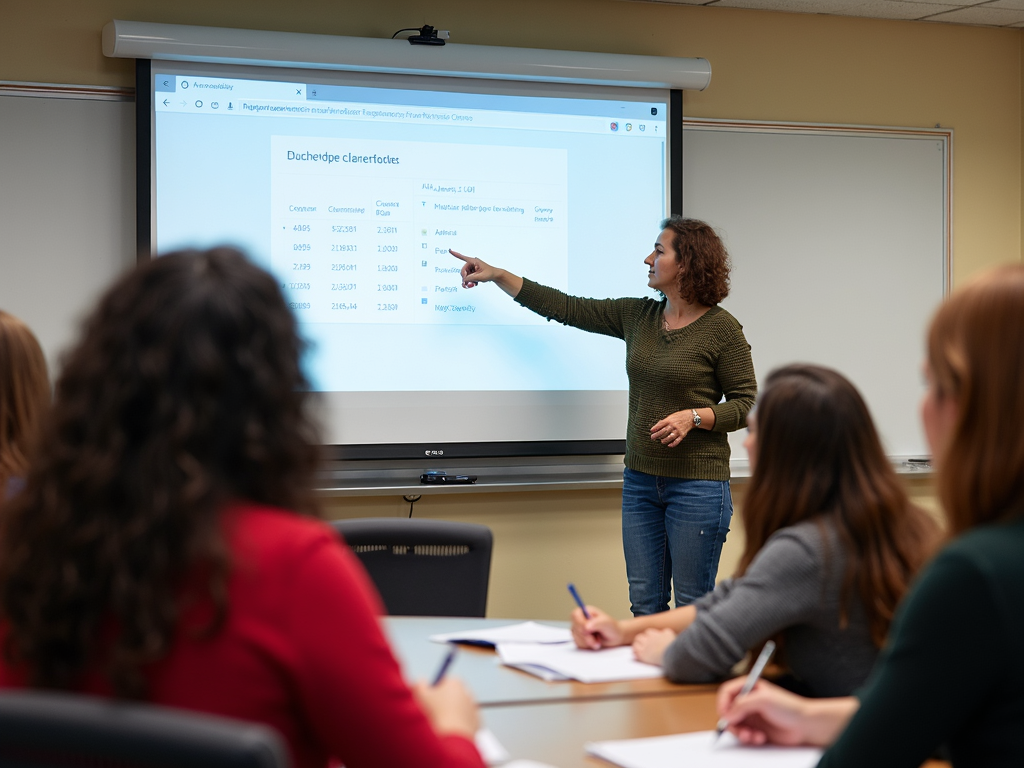Data-Driven Volunteering: How the National Center for Education Statistics Inspires Tech Professionals to Make a Difference
By , July 5, 2025
The National Center for Education Statistics (NCES) is a vital resource for understanding the state of education in the United States. By providing comprehensive data on schools, students, and educational outcomes, the NCES empowers volunteers, especially tech professionals, to identify areas where they can make a significant impact through skill-based volunteering.
The National Center for Education Statistics (NCES) is the primary federal entity responsible for collecting, analyzing, and sharing data related to education in the United States and beyond. Founded in 1867, it’s part of the U.S. Department of Education. Its mission? To deliver clear, reliable data that helps everyone—from lawmakers to teachers—make smart choices about education.
Why does this matter? Education shapes the future, and the NCES gives us the tools to see what’s working and what’s not. For volunteers, this data is like a roadmap. It shows where help is needed most. Want to learn more about their work? Check out the official NCES website.

The NCES gathers all kinds of data—think student enrollment numbers, teacher qualifications, school budgets, and test scores. This info is shared through reports and online tools that anyone can use. For example, the Common Core of Data (CCD) offers details about public schools, like how many students they serve and what resources they have.
Then there’s the National Assessment of Educational Progress (NAEP), nicknamed the 'Nation’s Report Card.' It tracks how students are doing in subjects like math and reading. Volunteers can use this to spot schools or subjects that need extra support.
Take internet access, for instance. NCES data shows that rural schools often lag behind urban ones in high-speed internet. That’s a real problem in today’s digital world—and a perfect chance for tech volunteers to step in and help.

Tech professionals have skills that schools desperately need. There are so many volunteering opportunities for tech professionals in schools. They can set up computer labs, create educational apps, teach coding, or train teachers to use new tools. These efforts don’t just fix problems—they inspire students too.
Here’s a quick list of ways tech pros can help:
- Install tech: Set up computers or networks.
- Build tools: Design apps or websites for learning.
- Teach skills: Lead coding or tech workshops.
- Train staff: Show teachers how to use tech in class.
- Analyze data: Help schools understand their stats.
Skill-based volunteering in education is a win-win. Schools get expert help they couldn’t afford otherwise, and volunteers get to see their skills change lives. I once helped a school set up a basic website. The teachers were thrilled—they could finally share updates with parents easily.
So, what’s skill-based volunteering? It’s when you use your job skills—like coding or data analysis—to help out. Regular volunteering might mean reading to kids, which is great, but skill-based volunteering in education tackles bigger challenges. It’s about matching your expertise to a school’s needs.
Schools often lack the budget for tech upgrades or data experts. That’s where volunteers shine. A tech pro might fix a slow network, saving a school thousands. Or a data whiz could show teachers how to use test scores to help struggling students.

The NCES data isn’t just numbers—it’s a call to action. Volunteers can dig into it to find schools with big needs. Maybe a district has low reading scores, or a school lacks computers. With this info, you can target your volunteering where it’ll do the most good.
I’ve seen this work firsthand. A friend used NCES data to find a school with outdated tech. He organized a team to donate laptops and teach basic coding. Within a year, the students were building simple games. That’s the power of data-driven volunteering.
Groups like DataKind take this further. They connect data experts with schools to solve problems—like figuring out why some kids fall behind. It’s proof that skill-based volunteering can transform education one project at a time.
Ready to volunteer? Here’s how to start:
- Know your skills: What can you offer?
- Find opportunities: Check sites like VolunteerMatch or Catchafire.
- Contact schools: Ask local principals how you can help.
- Use NCES data: Look up schools that need your skills.
Start small if you’re nervous. Offer a one-time workshop or fix a single computer. You’ll be amazed at how much impact you can have—and how good it feels to help.
In short, the National Center for Education Statistics gives us the facts we need to improve education. For tech professionals, it’s a goldmine for finding volunteering opportunities in schools. Skill-based volunteering lets you use your talents to solve real problems, making schools better for everyone.
So why wait? Dive into the NCES data, find a school that needs you, and start volunteering. You’ve got the skills—now’s the time to use them.